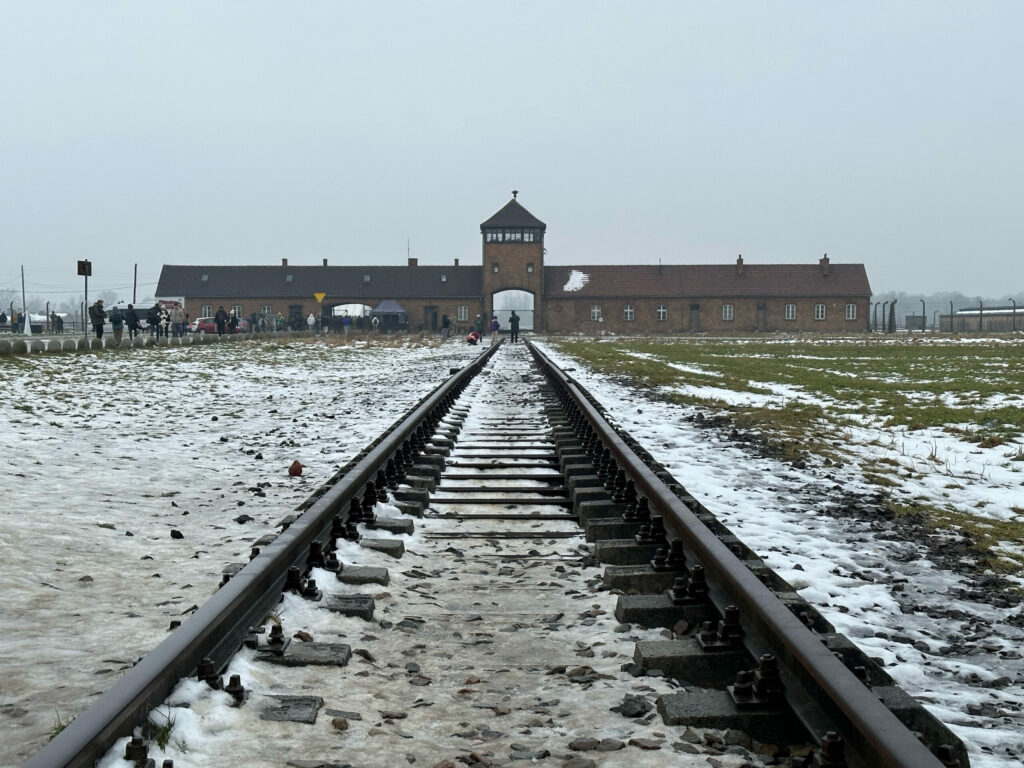Today, 27 January, marks the 80th anniversary of the liberation of the Nazi concentration and extermination camp Auschwitz-Birkenau, near Kraków (Poland).
In the run-up to the commemoration, some 100 secondary school pupils, aged between 17 and 19 from all over Belgium, make the trip to Poland to see the site where genocide on an industrial scale took place with their own eyes.
Profoundly impacted by the trip, some of them spoke to The Brussels Times about what they saw and learned.
"The common thread of everything we saw was to stress the importance of remembering as a way of preventing something like the Holocaust from ever happening again," said Gilles (17) from the Einstein Atheneum in Evergem.
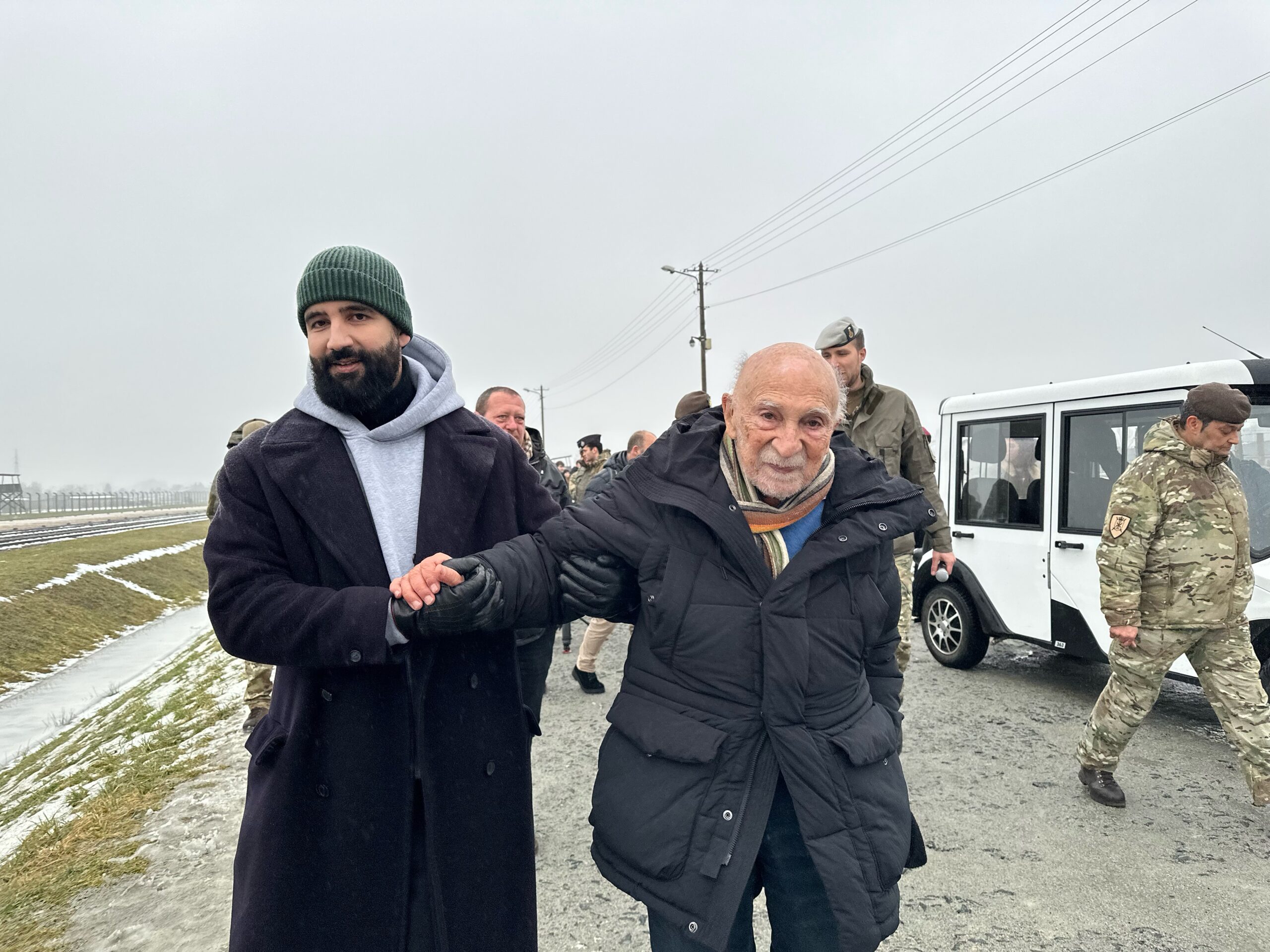
Holocaust survivor Simon Gronowski (R) pictured during a memorial trip with young Belgians to the Auschwitz-Birkenau concentration and extermination camp. Credit: Belga / Maarten Weynants
Fieke (17) from the Gibbo Galbergen special needs school felt that the trip to Auschwitz should be made mandatory for all pupils. "I had already seen and heard a great deal about Auschwitz, but going there myself gave me a completely different feeling. The horrible things that happened here hit much harder when you see it yourself."
Her classmate Tobi (17) agreed, adding that it is crucial to learn about the Second World War and the Holocaust. "Everyone must learn what happened there, and see how far a person can go to harm other people."
For some students, it took time for the horrors of Auschwitz to sink in. "But from the moment that realisation hit me, I spent all day with a strange feeling in my stomach," Gilles said. "Especially standing at the famous Arbeit Macht Frei [Work will set you free] gate and seeing it in real life... That was very intense."
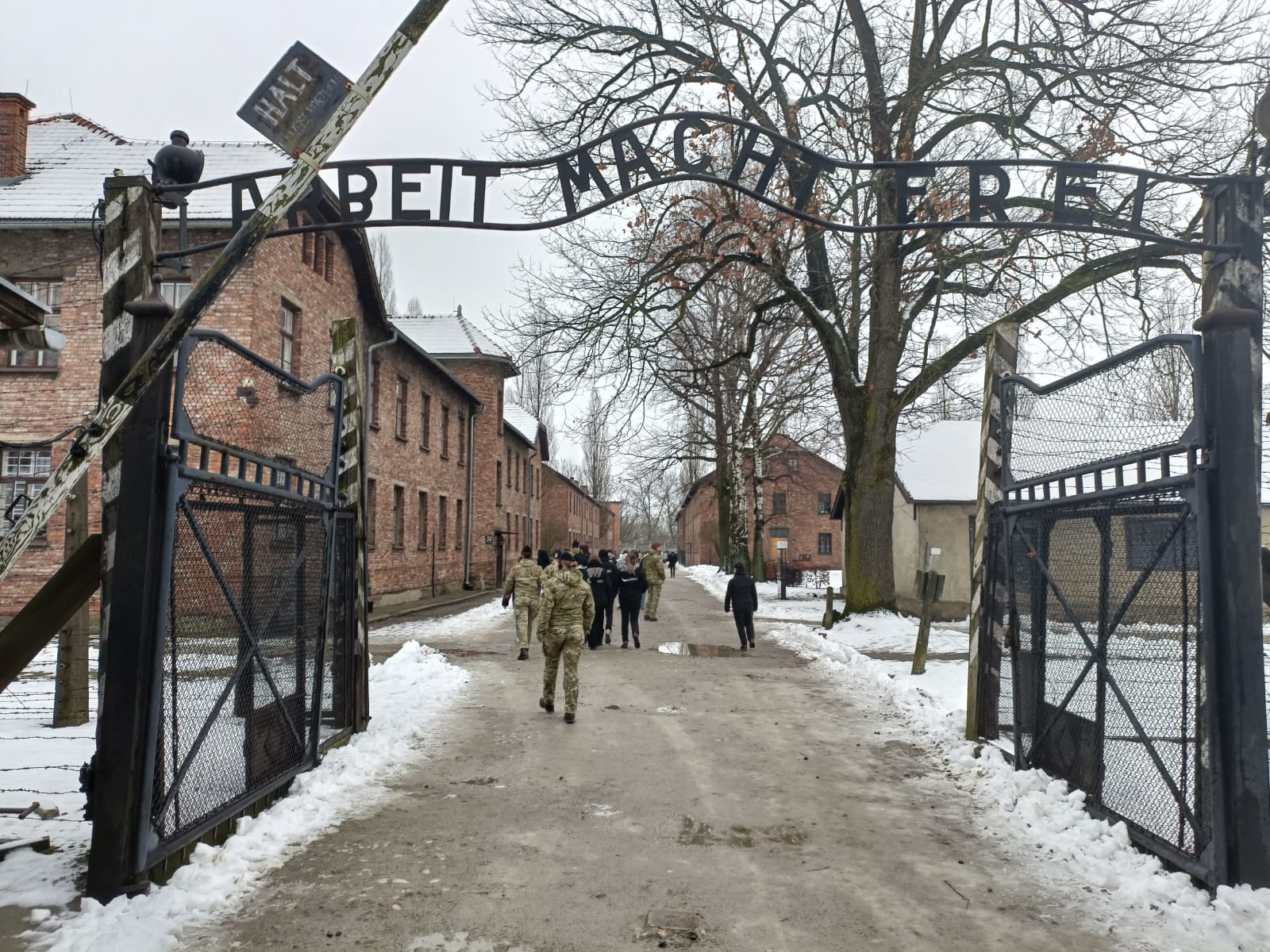
Credit: Gibbo Galbergen
One survivor of the Holocaust, Simon Gronowski (93), also went on the trip to Auschwitz – as he does every year to teach young people about what happened. As a child, he jumped from a train going from Mechelen to the extermination camp.
"I jumped before my mother did. If I had known that she would not follow, I would not have jumped either," he said. "She and my sister were murdered in Auschwitz-Birkenau. After the war, I was left alone."
Still, Gronowski has never felt hatred and has lived his life to the fullest. With his yearly trip, he wants to urge the teenagers to do the same. "Witnesses like me will eventually all disappear. But the collective memory of the horror that was organised here does not depend on witness accounts."
He believes the pupils he speaks to every year are now bearers and transmitters of history. "Spread the message of peace and tolerance. Be ambassadors of hope," Gronowski said.
Gilles was very affected by Gronowski's words. "Simon lost his entire family there, and yet he goes back every year. Despite everything, his message was very positive. If he can still see the best in life, after everything, then I think we should certainly not give up."
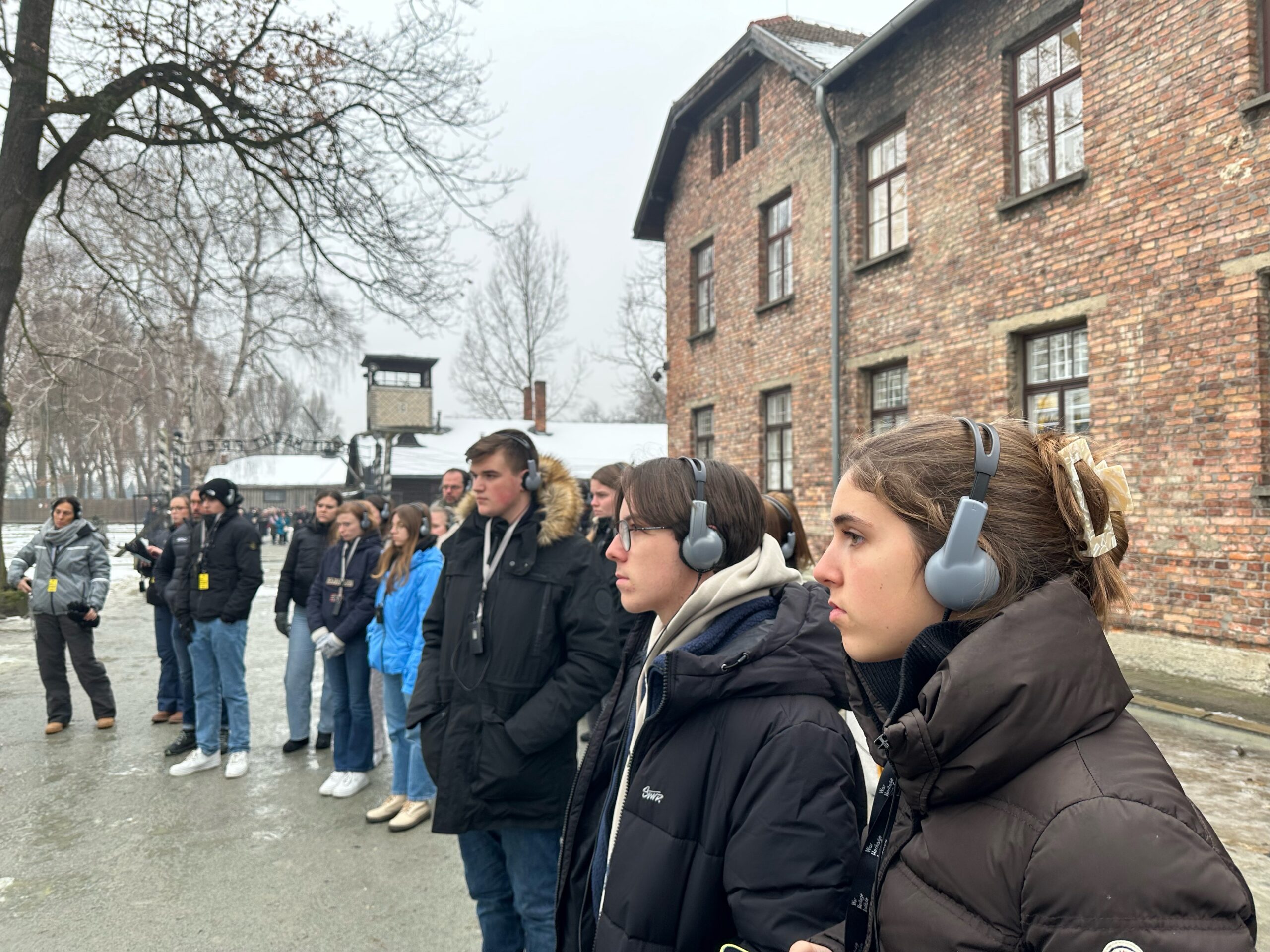
A memorial trip with young Belgians to the Auschwitz-Birkenau concentration and extermination camp, organized by the War Heritage Institute in collaboration with Defense, in Oswiecim, Poland, Thursday 18 January 2024. Credit: Belga / Maarten Weynants
The speech, as well as the stories about the harsh regime in the concentration camp, made a great impression on the students, according to schoolteacher Leen Van Hoorde.
"It is essential that we keep the memory of the horrors of the Nazi regime alive and a visit to Auschwitz-Birkenau contributes to this. We must never forget the great human toll of war," Van Hoorde said. "Today, hatred, intolerance and racism are once again rampant."
As a historian and guide about the resistance, she already had a great deal of background knowledge on the camp, but stressed that the stories become much more tangible on the site. "There are many photos and you can literally look some prisoners in the eye. That confrontation through images really hit home."
Teacher Sara Neven of the Sint-Franciscuscollege in Heusden-Zolder shared her colleague's feelings. "I was impacted by the trip not just as a teacher, but as a mother of three children. We saw a photo of a mother carrying a small child in her arms, with a boy walking next to her. Two of my children are roughly the same age. I couldn't help but put myself in her position."
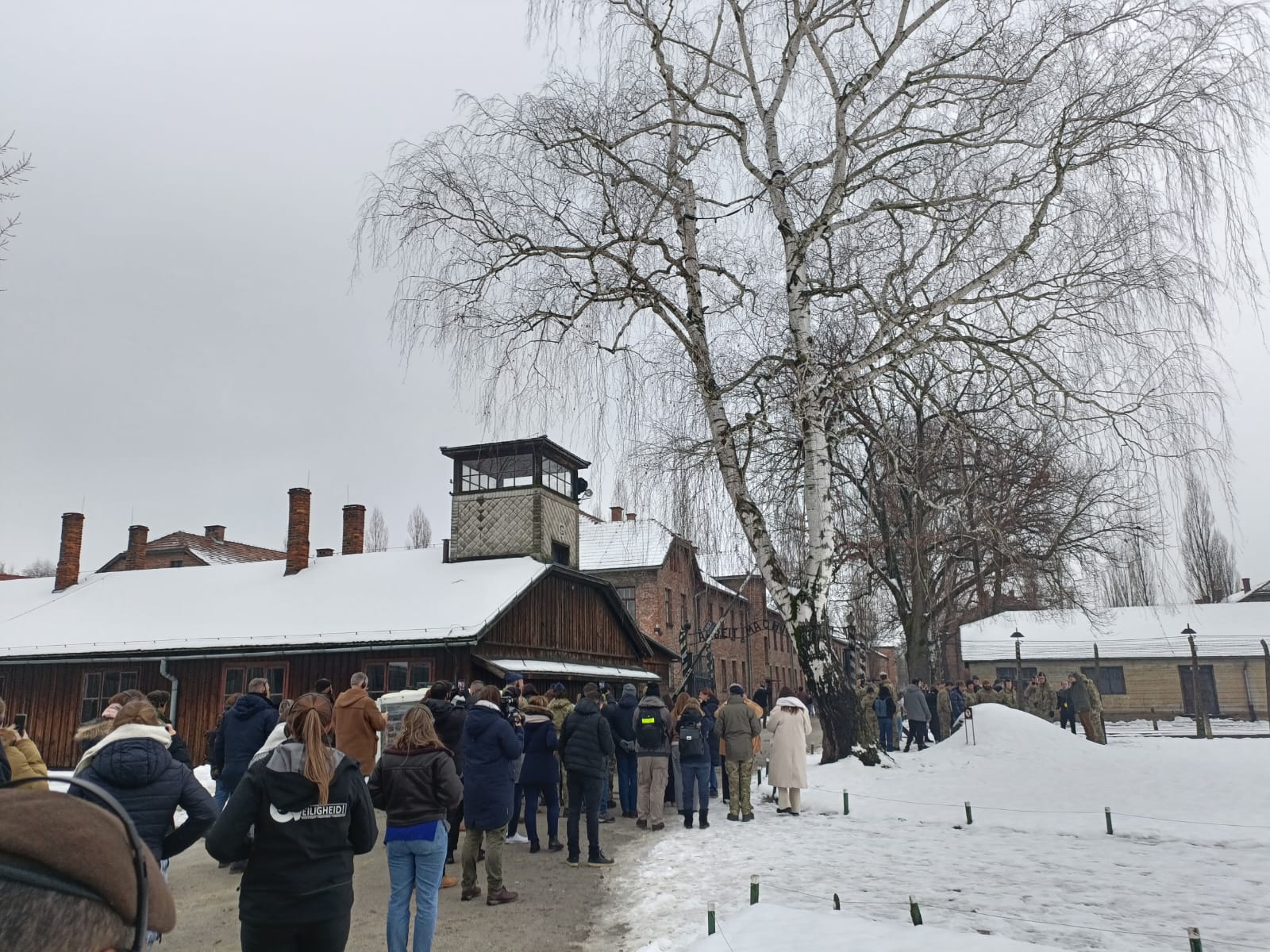
Credit: Gibbo Galbergen
One of her pupils, Laura (19), agreed that all the photos and objects in the camp made what happened 80 years ago feel very present. "The entire visit gave me the shivers. I have seen and learnt a lot. These experiences should be mandatory for everyone."
She also spoke about the many wars and conflicts happening right now. "We speak about Auschwitz as if it is history, but this has made me think about whether we will experience something similar in our lifetime. Especially with everything going on in the world now, it is really important to have this experience."
Gilles, too, emphasised that the experience will make him more vigilant in the future. "Things can go wrong really quickly, and it is important for young people to realise that. Especially now, it is more relevant than ever. They say fascism is a silent killer, and that it is coming faster than you think. So that is something I will look out for. And even more so after this visit."

